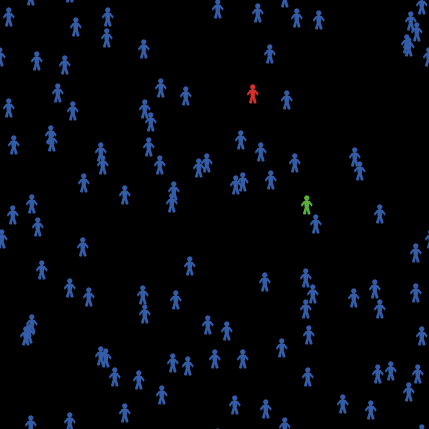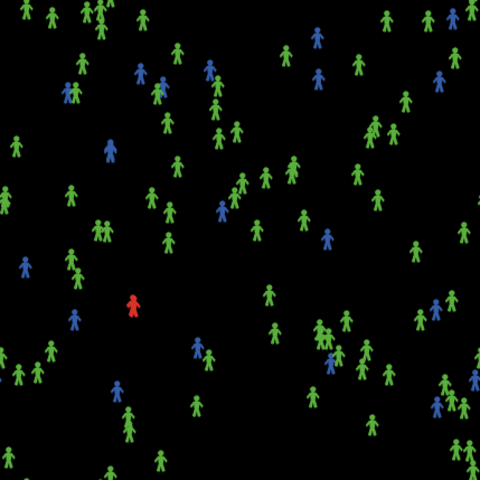Vaccines are a vital aspect of both individual and public health. On a personal level it’s important to get vaccinated in order to prevent infectious diseases. Even if you feel you’re at a low risk of becoming infected, it’s still essential to get vaccinated. Vaccination at a population level induces a phenomenon called ‘herd-immunity’. Herd immunity is especially relevant to people who are immune compromised and are thus not able to get vaccinated themselves, such as those of us with HIV, Crohn’s disease, very young children, etc.

Yet, some people see vaccinations as counterintuitive. To their mind it’s weird to take a slight risk of getting vaccinated for a disease that is not currently causing any harm to them or their children. It’s therefore key to communicate the importance of herd immunity. The concept is simple; drastically reducing the amount of people that could become infected reduces the risk of this disease spreading in the population. Here’s a quick example, Jimmy (in green) lives in a town of a 100 people. Unfortunately 10 year old Jimmy has cancer, which means he can’t get vaccinated. Because of his disease, he is very susceptible to the flu and if he catches it he can get severe complications, even death. Let’s say all of Jimmy’s neighbours (99 of the people in blue) get vaccinated against the flu. This means that if someone carrying the flu (in red) enters the town, it’s highly likely that no one in Jimmy’s town is going to get infected, because they are all immunized. The flu won’t spread in the town and Jimmy is safe.

However, if only 20% of Jimmy’s neighbours are vaccinated, that means that 80 people in the town are susceptible to the flu. If someone then carries the flu into Jimmy’s town, the flu will find more susceptible people (people that can be infected). The disease will have the opportunity to spread more easily and potentially infect Jimmy.

In short, vaccination is important on a personal level, but it is often more so at a ‘population’ level. Vaccines not only protect an individual against disease, but it also prevents it from being spread among a population. Vaccination might seem like a very personal choice, but choosing to be vaccinated (or not) affects the whole community. Arthur Allen, author of ‘Vaccines’, puts it this way: “Vaccines have become the victim of their own success”, because we don’t see the damage certain diseases cause anymore (such as polio, measles, smallpox, etc) we tend to forget their importance. We don’t recall the fear that parents felt every summer during those polio epidemics, the pain caused by smallpox and the pain caused by someone dying of a(n) (preventable) infectious disease. Vaccination is one of the most powerful scientific developments made in the history of medicine, and we cannot forget the relief Salk and Sabin brought to thousands of communities in fear of losing their children.
Gwendoline Deslyper

- CDC. MMR (Measles, Mups, Rubella) VIS 2014 [Available from: http://www.cdc.gov/vaccines/hcp/vis/vis-statements/mmr.html.
- CDC. Cancer, the Flu, and You 2015 [Available from: http://www.cdc.gov/cancer/dcpc/resources/features/cancerflu/.
- Allen A. Vaccines: The Controversial Story of Medicine's Greatest Lifesaver: W. W. Norton; 2007.
- Fine P, Eames K, Heymann DL. "Herd immunity": a rough guide. Clin Infect Dis. 2011;52(7):911-6.
- image herd immunity: By National Institutes of Health (NIH) - National Institutes of Health (NIH), Public Domain, https://commons.wikimedia.org/w/index.php?curid=29552677
- image three musketeers: http://www.allposters.com/-sp/Three-Musketeers-Raising-Swords-Posters_i9747837_.htm